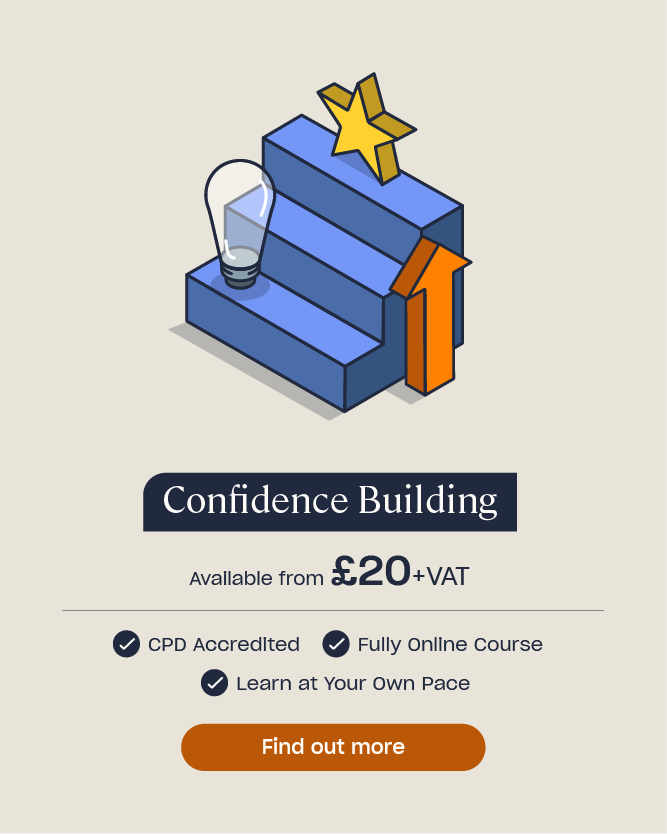How to Develop a Growth Mindset in the Workplace
Our mindset can have a huge impact on both our personal and professional lives. It can impact how resilient we are, how we approach challenges and how positively and confidently we go through life.
This article will outline what it means to have a growth mindset, the traits associated with it, and discuss the benefits it can bring while highlighting how it differs from a fixed mindset. We will also take a look at how a growth mindset can be developed, as well as the importance of promoting this mindset in the workplace.
What is a Growth Mindset?
Carol Dweck, a psychology professor at Stanford University discussed her theory of a “growth mindset” in her 2007 book “Mindset: The New Psychology of Success”. In it, Dweck describes how fixed and growth mindsets significantly affect our personal success in life and how both mindsets are linked to how we view ourselves and the challenges we face.
Carol Dweck is said to be one of the world’s leading researchers in the field of motivation. Her research built upon the theory of neuroplasticity (the brain’s ability to continue to form new connections into adulthood), with this said to be possible after it has been damaged or when it is stimulated by new experiences.
From this comes the belief that our mindset can be altered and developed through new learning and experiences. In recent years, many schools and educators have started using Dweck’s theories to inform how they teach students.
Having a growth mindset means a person believes in their ability to continuously grow and learn new things, from developing new skills and talents to developing themselves and their beliefs through dedication and practice. People with this type of mindset believe their abilities, intelligence and performance can be improved upon and are not limited to their current level. This mindset is said to influence people’s likelihood to succeed.

A growth mindset is one most likely to be held by resilient people and by those who seek to succeed through hard work and dedication, are self-aware, and practice self-reflection. In challenging circumstances, they often see their mistakes and ‘failures’ as an opportunity to learn and grow.
They do not dwell on these moments; instead, they take a potentially demotivating and negative outcome and turn it into a positive springboard for further improvement and success going forward.
Growth Mindset Vs. Fixed Mindset
Carol Dweck describes how people with a growth mindset tend to learn from their mistakes, be responsive to criticism, and face challenges head-on while people with fixed mindsets try to ignore criticism or avoid making mistakes completely.
Those with a fixed mindset also tend to resist altering their way of thinking and absorbing new information. Often feeling threatened by anything that challenges this and how they normally do things. Whether this is how they perceive and react to challenges and stresses, how they participate in their relationships or how likely they are to put themselves forward for any activity or task outside of their comfort zone.
This is because of the firmly held belief that people’s abilities are fixed, therefore, anything that doesn’t align with their current way of thinking and doing is more likely to be something that is disregarded or avoided. Fixed mindsets are generally resistant and closed off to the opportunities and experiences that could help them to change, making them less likely to put in the dedication and practice required to develop their existing skills and abilities.

Let’s take a look at some of the characteristics held by those with growth and fixed mindsets.
Traits of those with a growth mindset include:
- Believing that they can develop their intelligence.
- Approaching life’s challenges head on.
- Being determined to overcome obstacles.
- Committing extra effort and energy to everything they do, as they recognise this as important for growth.
- Responding openly and positively to criticism, as they see it as an opportunity to develop.
- Admiring others’ success and using it to inspire their own development.
Traits of those with a fixed mindset include:
- Believing that intelligence is static.
- Avoiding challenges.
- Easily giving in to obstacles.
- Resisting making extra effort, as they see it as pointless.
- Avoiding or ignoring criticism, even if it’s constructive.
- Feeling threatened by, or envious of, others’ success.
Take a look at our short animation that further explains and highlights the importance and key differences between growth and fixed mindsets:
Why is a Growth Mindset Important in the Workplace?
The benefits of fostering growth mindsets within the workplace are seen at all levels and within all industries. From employer to employee, there can be widespread gains from this approach to both personal and professional development.
Those with a growth mindset are likely to be more adaptable, both in their approach and their skillset as they will better understand the importance of continuous improvement and learning. Having this understanding also helps to avoid a culture of competitiveness and jealousy, and helps to promote a more supportive, trusting and collaborative workforce.
This is because people with a growth mindset embrace challenges and seek out opportunities to learn and mentors to learn from. If a worker has a fixed mindset and believes a person’s skills and abilities are set and unchangeable, they are more likely to view their colleagues out performing them or otherwise ‘doing better’ as a cause for negativity.
By promoting an environment where everyone is supported and encouraged to keep growing, take chances, make mistakes and given opportunities to continuously learn and develop new skills, morale is boosted and employees feel more motivated.
Want to Learn More?
Why not take a look at our wide variety of online training courses to help you or your employees further develop. We have a range of compliance courses as well as numerous core skills topics, such as resilience training and confidence building to help learners both personally and professionally.
How to Develop a Growth Mindset
If the process of developing a growth mindset is approached with the right attitude and the right tools, it is achievable for everyone. Each person’s journey will look different and will depend on their individual circumstances and the traits they already possess.
Embracing change, taking chances and being open to continuous learning and development, is incredibly important to changing the type of mindset you have. It is important to recognise that having a growth mindset won’t just enable you to achieve better at work, it allows you to confidently and positively deal with all of life’s challenges, as well as helping you to build healthier relationships, embrace imperfections and encourage more positive mental health.
To develop a growth mindset you have to remember that change isn’t easy, it takes time and it takes effort. A few tips to help you on your journey to success include:
- Learn to listen to and recognise how you speak to yourself. Are you championing yourself to try new things and push yourself? Or are you constantly telling yourself that any possibility of failure should be avoided at all costs?
- Change how you view failure. There is no failure. There is only learning or failing to try.
- Put in the time and keep practising. If you weren’t happy with your performance when you tried something new or you didn’t feel confident, keep practising and you will keep growing.
- Ask for help and support. Whether it is from friends, colleagues or a mentor, make sure you gain access to all the knowledge, tools and resources you need to help you succeed. Never avoid telling people you don’t understand, asking questions or getting something wrong.

The way you approach mistakes, feedback and even criticism can inform how likely you are to continue to learn and improve. For example, receiving positive feedback is always encouraging and highlights what your strengths are and what you are doing well at. However, constructive feedback is also incredibly important. This type of feedback can highlight which areas you would benefit from developing further to affect your overall progress and improvement.
For feedback to be the most honest and accurate representation of how you perform at work, 360 degree feedback can be incredibly useful as it allows people to leave feedback anonymously and is taken from a much wider selection of colleagues than simply those in management. For further information, check out our related article: A Guide to 360 Degree Feedback: Free Template.
Remember, developing a growth mindset takes time and effort. Be patient with yourself, ask for help and support and keep practicing. Progress will come. Individuals and businesses as a whole can hugely benefit from fostering an environment that supports constant development.
Further Resources:
- Business Essentials Training Courses
- A Personal Development Plan (PDP) Guide & Template
- Confidence Building Course
- What are the Skills for the Future of Work?
- Resilience Quiz
- Resilience in the Workplace: What are the Benefits and How Can Businesses Develop It?







